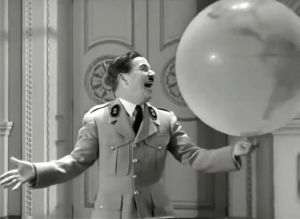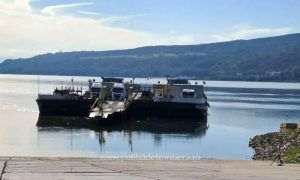• The lawyers who won the lawsuit claim that the court"s decision sets a precedent, which will allow shareholders in other companies to request the buyback of shares
Two courts of Cluj have determined that the legal status of the Rasdaq market doers not allow it to be considered as a regulated market, ruling in favor of the minority shareholders of a company, who were asking for their right to make an exit, according to law firm "Zamfirescu Racoţi Predoiu".
The two minority shareholders, who own about 10% of a company listed on the Rasdaq, "Arta Culinară" Cluj-Napoca (ARCU), went to court, after the company refused to buy back their shares, when they expressed their intention to exit the company, as they did not approve of the company"s plans to merge with another company. The lawyers of the two minority shareholders claim that the company told the two shareholders that, if they didn"t agree with the merger, they could sell their shares on the Rasdaq market.
Stan Tîrnoveanu, senior partner at law firm "Zamfirescu Racoţi Predoiu", who handled this case, said: "We have calculated that it would have taken our clients 23 years to sell their shares at a price 37 times lower than the one mentioned in the merger report, or in 3500 years at a price similar to the one mentioned in the merger report, and thus we have argued that, because of this, the shareholders do not really benefit from the right to withdraw from the company.
It"s like allowing the exertion of the right to marry only after 50 years have elapsed from the moment of the marriage ceremony. The shareholders in question ran the risk of remaining captive in a company which was planning a merger which they did not approve, even though in theory the law allowed them to make their exit".
The stake of the lawsuit was the following: if the Rasdaq was labeled as a regulated market, then shareholders would be required to sell their shares on the Rasdaq, but Romania has not published a notice in the Journal Officiel, as per the European directive that the Rasdaq is a regulated market.
If the Rasdaq is considered an unregulated market, then the shareholders can appeal to the provisions of the law no. 31/1990 concerning companies, by requiring the minimum protection that this law provides to shareholders, and by requesting the company to buy back their shares at a price set by an evaluation report drawn up by an evaluator appointed by the delegated judge of the Trade Registry".
On June 22nd, the High Court of Cassation and Justice reaffirmed the ruling issued by the Court of Appeal of Cluj, by which the instance of appeal acknowledged the shareholders" rights that were unhappy with the merger performed by the company to withdraw.
"Arta Culinară" was sentenced to appoint an independent certified expert which would determine the price to be paid for the shares of those who exerted their right to withdraw from the company, the lawyers who handled this case said yesterday.
• Precedent or decision?
The representatives of law firm "Zamfirescu Racoţi Predoiu" claim that "the decisions of the High Court of Cassation and Justice and of the Court of Appeal of Cluj establish a precedent and mark the beginning of a customary law in this matter, as both courts have confirmed that the current legal status of the Rasdaq market does not allow for it to be considered a regulated market within the meaning of the Law no. 297/2004".
According to the quoted lawyers, such a precedent would allow any shareholder of any company listed on the Rasdaq market, that did not agree to the company"s merger or division decision and therefore wants to exit the company, to be able to buy the shares at a price as close as possible to their real value.
However, not everyone agrees with this interpretation.
For instance, lawyer Gheorghe Piperea, claims that 99% of lawyers agree that the legal precedent does not have the effects of a law, even though this conception has begun to change, under the influence of the European Court of Human Rights and of the European Court of Justice.
"Legal precedents aren"t accepted by everybody. There are lawyers that consider it as having the same effects as a law and others who disagree", lawyer Piperea said.
Art. 134 of the Law of Commercial Companies stipulates that shareholders that voted against a decision of the General Shareholder Meeting only have the right to withdraw from the company and to request that the company buy out their shares, in the following cases: the change of the company"s line of business; the relocation of the company"s headquarters abroad; the change of the company"s type; the merger or the division of the company.
The same article stipulates that the price that the company will be required to pay for the shares of the shareholders that exert their right to withdraw from the company will be determined by a certified independent expert, as the average value resulting from the application of at least two evaluation methods acknowledged by the legislation in effect upon the date of the evaluation.
























































